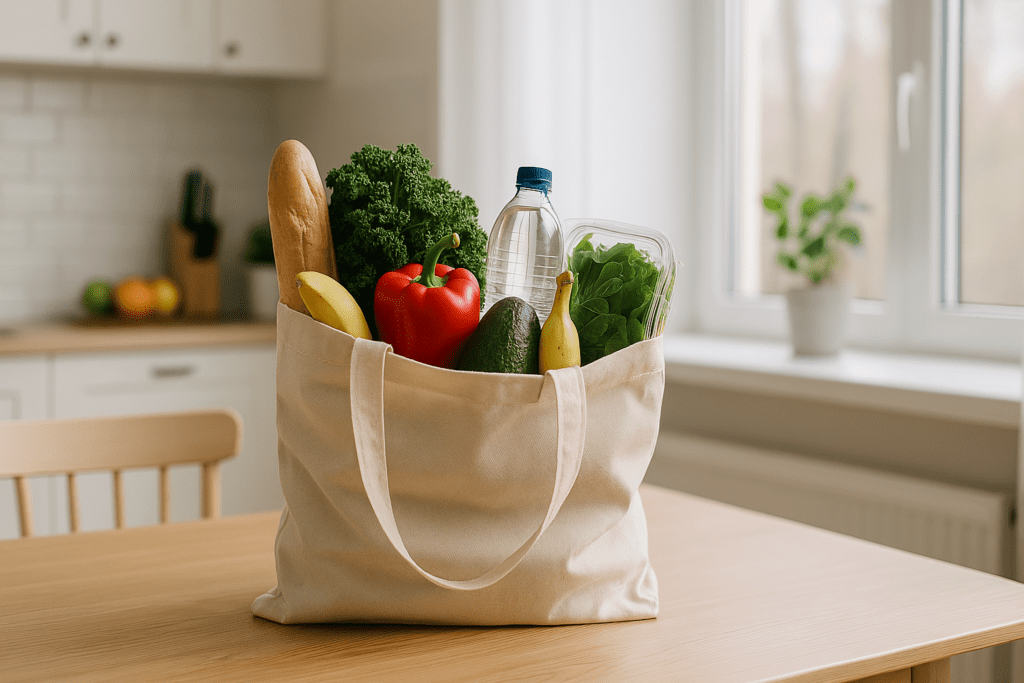In a fast-paced world where convenience often trumps nutrition, making intentional choices about what we eat can be both a challenge and an opportunity. The rise of mindful eating has brought a renewed focus on the quality, origin, and nutritional value of the food we consume daily. But mindful eating doesn’t start at the dinner table—it begins at the grocery store. Whether you’re navigating neighborhood markets or exploring national health food store chains, finding the healthiest grocery stores can transform the way you approach food, health, and wellness.
This article takes a deep dive into how to identify the best healthy grocery stores, what sets them apart, and how you can shop smarter to fill your cart with truly healthy things to buy. From reading labels with discernment to understanding which food store environments foster the healthiest habits, we’ll explore expert strategies rooted in the principles of nutrition science, consumer awareness, and sustainable health practices.
You may also like: Smart Eating on a Budget: How to Create Cheap Healthy Meals Without Sacrificing Nutrition
Why Choosing the Right Grocery Store Matters for Your Health
Where you shop has a profound influence on what ends up in your refrigerator and, ultimately, your body. The layout, product selection, ingredient transparency, and sourcing practices of a grocery store can either support or hinder your health goals. Research consistently shows that consumers are more likely to buy fruits, vegetables, and minimally processed items when they are prominently displayed and affordable. The healthiest grocery stores make this not only easy but inviting, shaping a health-oriented mindset through environment and access.
Many health-conscious consumers have started to seek out health food store chains that emphasize whole, organic, plant-based, and nutrient-dense foods. These stores are often curated to exclude ultra-processed products filled with preservatives, artificial sweeteners, or trans fats. Instead, they offer alternatives that support heart health, metabolic function, and longevity. The store you choose is not just a backdrop to your shopping trip—it’s a partner in your personal health journey.

Key Features of the Best Healthy Grocery Stores
What defines the best healthy grocery stores isn’t just what they sell, but how they sell it. First, ingredient integrity is paramount. Look for stores that prioritize clean labeling, avoid misleading health claims, and carry products verified by third-party certifying organizations like USDA Organic or Non-GMO Project Verified. These certifications help eliminate guesswork and make it easier to shop mindfully.
Second, healthy food grocery stores typically offer extensive produce sections filled with seasonal, local, and organic fruits and vegetables. This emphasis on fresh whole foods aligns with decades of research linking plant-forward diets to reduced risk of chronic illnesses such as type 2 diabetes, cardiovascular disease, and certain cancers. These stores often include wellness aisles with natural supplements, bulk grains, nut butters without added sugars, and plant-based protein options, all of which cater to health-conscious shoppers seeking clean, whole nourishment.
Additionally, staff expertise can significantly enhance your shopping experience. Stores with knowledgeable employees—especially registered dietitians, certified nutritionists, or holistic health advocates—create an environment where questions are welcome and guidance is readily available. This reinforces trust and makes the store a reliable resource, not just a vendor.

How to Identify a Truly Healthy Food Grocery Store
Not all stores that advertise themselves as “natural” or “organic” live up to the expectations of mindful eaters. Marketing language can be deceptive, which is why discerning shoppers must look beyond flashy packaging and buzzwords. A genuinely healthy food grocery store will prioritize transparency, nutritional education, and sustainability—not just profits.
Start by evaluating how much shelf space is dedicated to whole versus processed foods. Are there more vegetables than chips? More grains than sugar-laden cereals? Stores that build their model around real, recognizable food ingredients are aligned with mindful nutrition. It’s also helpful to examine the sourcing practices of meat, dairy, and seafood if you consume them. Ethical sourcing, hormone-free and antibiotic-free labeling, and environmentally sustainable fisheries signal a higher level of commitment to health and ecology.
Another useful metric is how the store handles dietary diversity. The healthiest grocery stores will accommodate a wide range of dietary needs—vegan, gluten-free, allergen-free, low-sodium—without relegating those items to hard-to-find corners. They are inclusive in both spirit and practice, helping shoppers of all backgrounds meet their wellness goals with ease.

Healthy Stuff to Buy: Building a Mindful Grocery List
Once you’ve found a store that supports your values and nutritional goals, the next step is learning how to build a shopping list that aligns with a mindful lifestyle. Start with the produce section—fill your cart with a colorful variety of vegetables and fruits, focusing on seasonal options for optimal flavor and nutrition. Leafy greens, cruciferous vegetables like broccoli and cauliflower, root vegetables, and berries all offer potent phytonutrients that support heart, brain, and immune health.
Next, turn to the bulk section if available. Health food store chains often offer whole grains, legumes, seeds, and nuts in bulk, which is not only cost-effective but also environmentally friendly. Stocking up on oats, quinoa, lentils, chia seeds, and almonds gives you the foundation for meals that are nourishing and customizable.
Look for minimally processed staples with simple ingredient lists—nut butters made with only nuts, plant-based milks without added sugars or gums, and whole grain breads with recognizable grains. As you walk through the aisles, keep an eye out for healthy things to buy that meet your dietary needs without sacrificing quality or taste. Mindful eating doesn’t mean boring eating; it means choosing foods that nourish and satisfy without unnecessary additives.
Regional Gems and National Leaders in Health Food Store Chains
In recent years, a growing number of health food store chains have emerged as leaders in the grocery landscape, elevating access to quality foods across the country. National chains like Whole Foods Market, Sprouts Farmers Market, and Natural Grocers have built reputations for curating nutritious offerings and maintaining high standards for ingredient quality. These stores often feature robust sections of organic produce, sustainable seafood, plant-based proteins, and wellness supplements, making it easier than ever to shop with intention.
At the same time, many regional markets have cultivated local loyalty by supporting small-scale farms, hosting community wellness events, and prioritizing food education. Stores like PCC Community Markets in the Pacific Northwest, MOM’s Organic Market in the Mid-Atlantic, or Erewhon in California represent localized expressions of the healthiest grocery stores. They often go beyond just food, offering cooking classes, eco-friendly packaging, and sustainability pledges that resonate with environmentally conscious consumers.
Whether you prefer a major chain or a local cooperative, your experience shopping in a healthy food grocery store is enhanced by the store’s mission, not just its merchandise. Aligning with a business that values community, sustainability, and wellness can add depth and meaning to the otherwise routine act of grocery shopping.
What to Watch Out for—Even in Health-Conscious Stores
While health food store chains are generally curated with better nutritional standards, it’s still important to shop with discernment. Just because a product is in a “healthy” store doesn’t mean it’s inherently good for you. Many products marketed as organic or natural still contain high levels of sugar, sodium, or saturated fats. Granola bars, frozen plant-based meals, and even green juices can be deceptively unhealthy depending on how they’re made.
Another common pitfall is assuming that more expensive equals healthier. While some high-quality foods do cost more due to production methods, ethical sourcing, or ingredient integrity, price is not always an indicator of health value. Learning to read nutrition labels, scrutinize ingredients, and compare similar products can help you make informed decisions regardless of price point.
Additionally, beware of “wellness trends” that may lack scientific backing. Superfood powders, detox teas, or the latest adaptogen craze might be appealing, but they’re no substitute for a balanced diet rich in whole, nutrient-dense foods. The best healthy grocery stores will offer these items as options—not necessities—and typically provide educational resources to help you make choices grounded in evidence, not hype.
Making Mindful Grocery Shopping a Habit, Not a Hassle
Consistency is key in any wellness journey, and your relationship with your grocery store can help anchor that consistency. By choosing a store that offers both healthy things to buy and a supportive environment, you make it easier to stick to your nutrition goals over time. Shopping mindfully means preparing a list with intention, shopping the perimeter where whole foods tend to be located, and allowing room for joy and discovery within the framework of wellness.
Many shoppers find success in making one major shopping trip per week for essentials, followed by smaller visits for fresh produce or specialty items. Planning meals in advance and shopping with a flexible list can help prevent impulsive purchases and reduce food waste. The healthiest grocery stores often offer tools like recipe cards, apps, or staff recommendations to support these habits, making it easier to build a lifestyle—not just a shopping routine—around mindful nutrition.
Ultimately, the act of grocery shopping becomes a ritual of self-care and conscious living when approached thoughtfully. Every decision—from which store you walk into, to which ingredients you choose—has the potential to either nourish or neglect your health.
A New Era of Wellness: How Today’s Shoppers Are Redefining “Healthy”
We are living in a time when the definition of health is expanding beyond calorie counts and diet fads to include sustainability, ethics, mental well-being, and cultural inclusion. The healthiest grocery stores are adapting to this shift by offering foods that reflect a broader, more holistic understanding of wellness. From supporting regenerative agriculture to featuring global flavors that honor culinary diversity, these stores are evolving alongside the people they serve.
Consumers are no longer passive participants—they are educated, engaged, and empowered to ask critical questions about their food. What farm did this tomato come from? Is this almond milk fortified with calcium? Does this packaging support sustainability? These are no longer niche inquiries—they are mainstream expectations. Healthy food grocery stores that rise to meet these demands are not only thriving but also reshaping the food system from the ground up.
As consumers continue to prioritize mindful eating, the demand for transparency, inclusivity, and quality will only grow. Grocery stores that can meet these expectations while still offering convenience and affordability will define the next generation of health food retail.
Frequently Asked Questions (FAQ): Discovering the Healthiest Grocery Stores and Mindful Shopping
1. How can shopping at the best healthy grocery stores improve my long-term eating habits?
Shopping regularly at the best healthy grocery stores can gradually reshape not only what you buy, but how you think about food. These stores create an environment that reinforces intentional choices, often with cleaner aisles, clearer labeling, and better access to fresh, whole ingredients. As you’re consistently exposed to healthier options and guided by informed store staff or nutritional signage, your preferences may shift toward more nourishing and less processed foods. Over time, the act of grocery shopping becomes an educational experience, reinforcing positive behaviors through subtle environmental cues. The healthiest grocery stores act as silent coaches, helping you build habits that last far beyond the checkout line.
2. What’s the difference between a traditional supermarket and a dedicated healthy food grocery store?
A traditional supermarket prioritizes volume and variety, typically offering both highly processed items and fresh produce in the same setting. In contrast, a healthy food grocery store is curated to minimize or completely avoid items with artificial additives, preservatives, or highly refined sugars and flours. These stores tend to stock food that supports dietary goals like plant-based eating, low glycemic loads, or anti-inflammatory nutrition. While a regular supermarket may carry some organic or healthy items, the overall emphasis is less focused than that of specialized stores. As a result, shoppers looking for consistent access to healthy things to buy often gravitate toward health-focused retailers.
3. How can I tell if a health food store chain is truly committed to wellness or just capitalizing on trends?
One way to assess a health food store chain’s integrity is to look beyond marketing and evaluate sourcing policies, staff training, and educational outreach. Stores genuinely committed to wellness often support local agriculture, provide educational resources such as workshops or dietitian consultations, and avoid selling products that make unverified health claims. Chains that emphasize food transparency, offer allergen-friendly and culturally diverse items, and continually revise their inventory based on new nutrition science show a deeper level of commitment. Transparency in labeling, supplier relationships, and sustainability goals are other markers of trustworthiness. The best healthy grocery stores are built on values, not just marketing language.
4. What are some underrated healthy things to buy that most people overlook at health-focused stores?
Many shoppers overlook foundational pantry staples in favor of trendier items like superfood powders or specialty snacks. However, nutrient-dense bulk items—such as amaranth, black lentils, or sprouted seeds—offer excellent value and long-term health benefits. Fermented foods like tempeh, miso, and kefir can also support gut health but are sometimes skipped due to unfamiliarity. Additionally, mineral-rich sea vegetables like nori or dulse flakes provide iodine and other trace minerals vital for metabolic health. In a truly healthy food grocery store, these kinds of ingredients are often shelved near familiar items, encouraging more adventurous and nutrient-dense purchases.
5. Can mindful grocery shopping help support mental health, or is it just about physical wellness?
Mindful shopping can significantly impact mental well-being by reducing decision fatigue, promoting a sense of control, and reinforcing self-care practices. When you choose to shop in the healthiest grocery stores, you enter a space designed to support your wellness values. This intentionality can enhance self-efficacy—your belief in your ability to take control of your health—which is closely linked to improved mood and reduced anxiety. In addition, the act of preparing nourishing meals from healthy ingredients often provides a grounding routine that contributes to emotional regulation. So yes, mindful grocery shopping supports more than your body; it can also nurture your mental clarity and emotional balance.
6. Are there any emerging trends in health food store chains that could shape future shopping experiences?
Yes, several trends are redefining the landscape of health food store chains. These include AI-powered nutritional kiosks that help personalize shopping lists, regenerative agriculture partnerships for produce sourcing, and refill stations that reduce packaging waste. Many stores are beginning to integrate wearable health data to inform shopping recommendations through loyalty apps. Others are exploring collaborations with local chefs to offer ready-to-eat meals that align with specific diets, such as Mediterranean, DASH, or anti-inflammatory protocols. These innovations aim to deepen the role of the grocery store as not just a food supplier, but a full-spectrum wellness ally.
7. What role do social and cultural factors play in choosing the healthiest grocery stores?
Cultural familiarity and social inclusion are increasingly important when assessing which grocery stores truly serve their communities. The healthiest grocery stores are starting to feature culturally diverse ingredients, multilingual signage, and foods that cater to varied traditions and dietary restrictions. This not only promotes inclusion but also makes healthy food more accessible to different population groups. Community partnerships, local sourcing, and food justice initiatives also reflect a store’s deeper commitment to equity and wellness. A truly healthy food grocery store doesn’t just serve food—it serves people, cultures, and communities with sensitivity and respect.
8. What are the environmental implications of choosing health food store chains over conventional supermarkets?
Many health food store chains prioritize sustainability through packaging choices, supply chain transparency, and reduced food waste. For example, stores may partner with regenerative farms or focus on zero-waste bulk sections. Choosing stores that emphasize local sourcing and seasonal availability also lowers the carbon footprint associated with food transport. Unlike conventional markets that often rely on plastic-heavy displays and industrial suppliers, the best healthy grocery stores often adopt closed-loop systems and composting practices. Shopping at these stores can amplify your positive environmental impact while supporting your personal health goals.
9. How can busy professionals integrate shopping at healthy food grocery stores into their routine without sacrificing convenience?
Time-strapped individuals can benefit from the growing trend of hybrid models—where many health food store chains now offer online ordering, curbside pickup, and delivery. Some even provide pre-portioned meal kits or grab-and-go meals that meet specific nutritional criteria. Planning ahead by shopping once a week and using apps that sync with grocery lists and meal plans can also streamline the process. Additionally, some of the healthiest grocery stores host early morning or late evening hours to accommodate professionals with demanding schedules. Integrating these time-saving strategies ensures that healthy things to buy are always within reach, even on a busy calendar.
10. How can I teach my children to identify and appreciate healthy stuff to buy while shopping?
Turning grocery trips into interactive learning opportunities can help children understand and appreciate nutrition from a young age. Involving them in reading labels, selecting colorful produce, or finding whole-food alternatives to packaged snacks fosters curiosity and critical thinking. The healthiest grocery stores often provide kid-friendly educational signage or workshops that turn shopping into a hands-on experience. You might create fun challenges—like identifying three new vegetables or choosing a fruit from every color of the rainbow—to make the process engaging. Over time, these experiences help children develop a natural understanding of how to recognize and choose healthy food, setting the stage for lifelong mindful eating habits.
Conclusion: Choosing the Best Healthy Grocery Stores for a Life of Mindful Eating
Mindful eating starts with mindful shopping. From understanding what makes certain stores the best healthy grocery stores to learning how to recognize the healthiest grocery stores in your region, this journey is about more than filling your pantry—it’s about reshaping your health from the ground up. The grocery store you choose becomes a partner in your well-being, guiding you toward healthy stuff to buy and healthy things to buy that genuinely support your lifestyle goals.
Health food store chains and local markets alike offer a wealth of opportunities to align your nutrition habits with your personal values. By selecting stores that emphasize clean ingredients, transparency, and sustainability, you not only improve your diet but also contribute to a food culture grounded in wellness and responsibility. Whether you’re stocking up on produce, exploring new whole grains, or simply browsing for mindful meal inspiration, the right store can help you stay true to your health goals.
In a world full of dietary noise, finding clarity in your grocery shopping is a powerful act of self-care. When you prioritize quality, integrity, and intention in what you buy, you are investing in a future of vitality, balance, and joy—one shopping trip at a time.
clean eating grocery tips, organic food shopping guide, plant-based grocery essentials, whole food nutrition, sustainable grocery shopping, mindful meal planning, best stores for clean eating, organic produce near me, non-GMO food options, eco-friendly food choices, local organic markets, dietitian-approved shopping tips, healthy pantry staples, nutritious grocery finds, smart food label reading, wellness-oriented supermarkets, conscious consumer food choices, fresh produce shopping tips, shopping for a healthy lifestyle, grocery habits for better health
Further Reading:
The Definitive Guide to Healthy Grocery Shopping
Easy ways to shop for healthful, cost-conscious foods
5 Easy Ways to Find Healthier Options While Grocery Shopping
Disclaimer
The information contained in this article is provided for general informational purposes only and is not intended to serve as medical, legal, or professional advice. While NewsHealthWatch strives to present accurate, up-to-date, and reliable content, no warranty or guarantee, expressed or implied, is made regarding the completeness, accuracy, or adequacy of the information provided. Readers are strongly advised to seek the guidance of a qualified healthcare provider or other relevant professionals before acting on any information contained in this article. NewsHealthWatch, its authors, editors, and contributors expressly disclaim any liability for any damages, losses, or consequences arising directly or indirectly from the use, interpretation, or reliance on any information presented herein. The views and opinions expressed in this article are those of the author(s) and do not necessarily reflect the official policies or positions of NewsHealthWatch.

